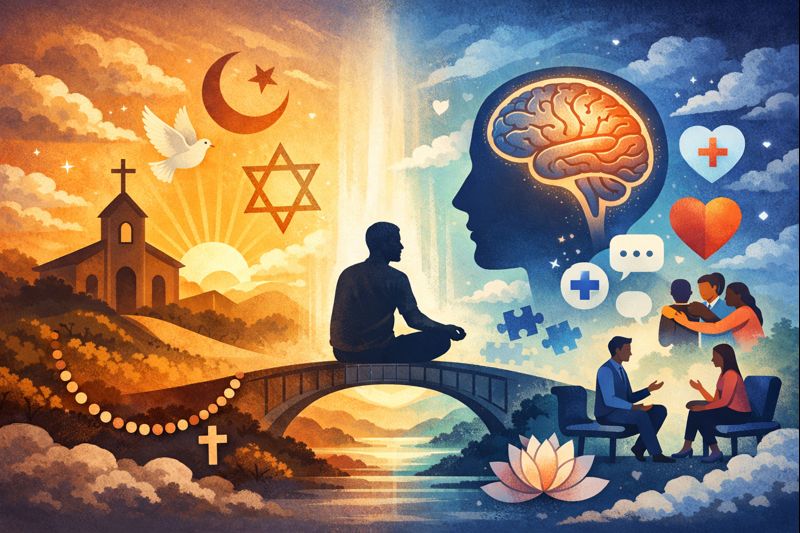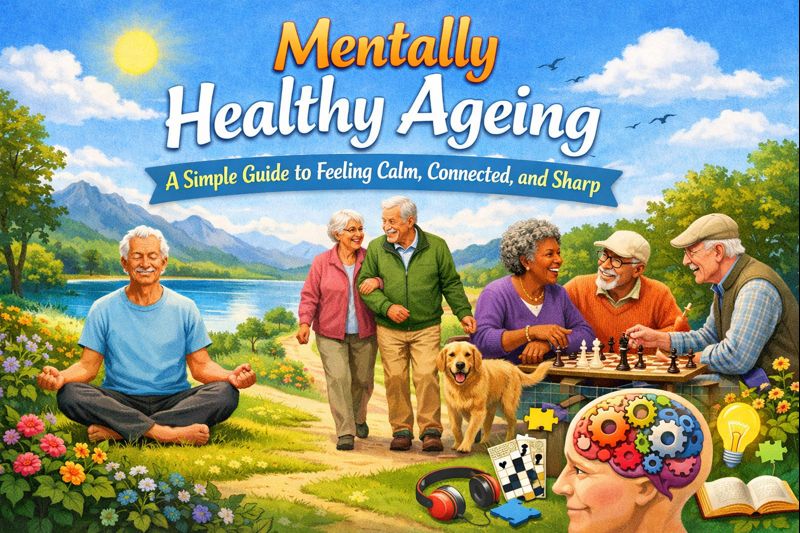Introduction: The Philosophy of Stoicism
The ancient philosophy of stoicism greatly emphasizes virtue, reason, and living in a harmonious manner. According to Stoics, real happiness comes internally rather than from the external material world. They focus more on emotional resilience and acceptance of the things that are not under our control. The philosophy further advocates concentrating on our own thoughts, feelings, and behaviours, as these things are under our own control. The rest of the things are not under our direct control.
Modern life needs Stoic strategies to manage difficulties because of its high speed and frequent stress. Adopting a Stoicism approach helps us develop peace within ourselves and teaches methods of controlling our thinking while responding to challenges. According to stoicism we can develop a meaningful existence through its strategic approach to handling the obstacles we encounter throughout our lives.
Understanding stoicism?
Our emotions dominate our lives. We often face negative and tough emotions, and we find them difficult to handle. We may experience joyful and happy moments at times, while depressing and sad moments on other occasions. Stoicism emerges as a tested approach to handle such emotions with superior results during these times. According to Stoicism our power extends only to regulating our responses and never to dictating life events.
According to the spiritual author Ryan Holiday, "The path becomes the obstacle in the path." This means that we can truly become stronger during difficult times. A stoic person is one who experiences calmness and manages their emotions in a balanced way.
A historical perspective on stoicism
There lived a man named Zeno in Athens, Greece, in 300 BC. He began to reflect on life after losing all of his fortune in a shipwreck. He chose to learn from the loss of everything rather than lament it. "Stoicism" got its name since he started educating people under a painted porch known as the "Stoa Poikile"!
The Stoic ideas were spread through the teachings of three famous thinkers who included Seneca the writer and Epictetus the former slave and Marcus Aurelius the emperor. Marcus Aurelius stated in his well-known book "Meditations": "You are in control of your thoughts, not external circumstances. You'll discover strength if you realize this."
Important stoic concepts
1. Pay Attention to What You Can Manage
Consider yourself engaged in a video game. You have no influence over what other players do, but you do have power over your character. Stoicism encourages people to focus on modifications within their control which include their attitudes alongside behaviors and efforts as well as their social interactions.
2. Show courage when things get difficult
It's not always easy in life. We occasionally lose games, get into arguments with friends, or flunk tests. Stoicism encourages us to have courage and grow from these difficult situations. "It's not what happens to you, but how you react to it that matters," Epictetus once stated.
3. Show kindness and help others.
According to Stoics, treating people well is crucial. They educate us to be honest, share with others, support friends in their time of need, and show respect for our parents and instructors.
4. Practice gratitude and appreciation.
Before you go to bed each night, list three positive things that occurred during the day. Perhaps you discovered something intriguing at school, or your mother prepared your favourite dish. We are joyful when we are grateful!
5. Recognize what you cannot change.
Instead of becoming frustrated if it rains on the day of your outdoor party, consider entertaining indoor activities. Seneca once remarked, "We suffer more often in imagination than in reality." Keep that in mind.
6. Learn from failures and mistakes.
When we fail or commit a mistake, rather than regretting or blaming others, we need to retrospect and learn lessons so that we do not repeat the same in the future. Often, our initial response is to assign blame for the outcomes to others. We should remember that such times are not to cry but to assimilate lessons. The opportunities may lie in those failures; we never know. What should be done to avoid the same outcome? We should give some thought to it. If under stress, take a few breaths to be calm. These may be the testing times of our lives.
Relevance of Stoicism in the Contemporary World
People still widely use stoic principles today to improve their lives. Even well-known sportsmen and entrepreneurs follow stoicism! They apply these age-old lessons to maintain concentration throughout contests. - Improve pressure management—make wise choices. - Assist others in achieving their goals.
One of the most stoic quotes from well-known children's author Roald Dahl is, "If you have good thoughts, they will shine out of your face like sunbeams, and you will always look lovely." This serves as a reminder that our thoughts shape our identities.
| Ready to transform your mind and body? Take the first step toward inner peace and emotional balance today.
To conclude
Stoicism is a very wide and comprehensive philosophy that teaches us many things that are very essential for leading a meaningful life, especially in the face of adversity and tough times. It makes us emotionally resilient and mentally tough to overcome life’s challenges. The most powerful part of philosophy is to focus on things that are under our control, such as our thoughts, emotions, behavior, and actions. Avoid trying to control things we can't, like others' behavior. Other powerful parts of philosophy are negative visualization and indifference to indifferent things.
Stoicism is about simple things. Be brave. Stay calm. Help others. By following these ideas, we can grow stronger, kinder, and happier. As Marcus Aurelius said, “Stop talking about what a good person should be. Just be one.”
Next time we feel upset, sad, or worried, remember the excellent philosophy of Stoicism. Take a break. Think about the choices that lie ahead of us. Then, take a smart step. Even if we are inexperienced, we have the same wisdom.
If you're ready to enhance your emotional resilience and find lasting peace, our meditation courses can guide you on that journey. Explore our Meditation Courses today and take the first step toward a calmer, more focused mind.
Are you looking for inner peace, deep relaxation or holistic solutions for mental health? Visit http://themindtherapy.in - your space for online counselling/therapy, free mental health tests, meditation, sound therapy etc.
Mind Therapy is India's trusted platform for mental health, mindfulness, and holistic healing. Explore expert-led programs, guided meditation, sound therapy and counselling at http://themindtherapy.in














